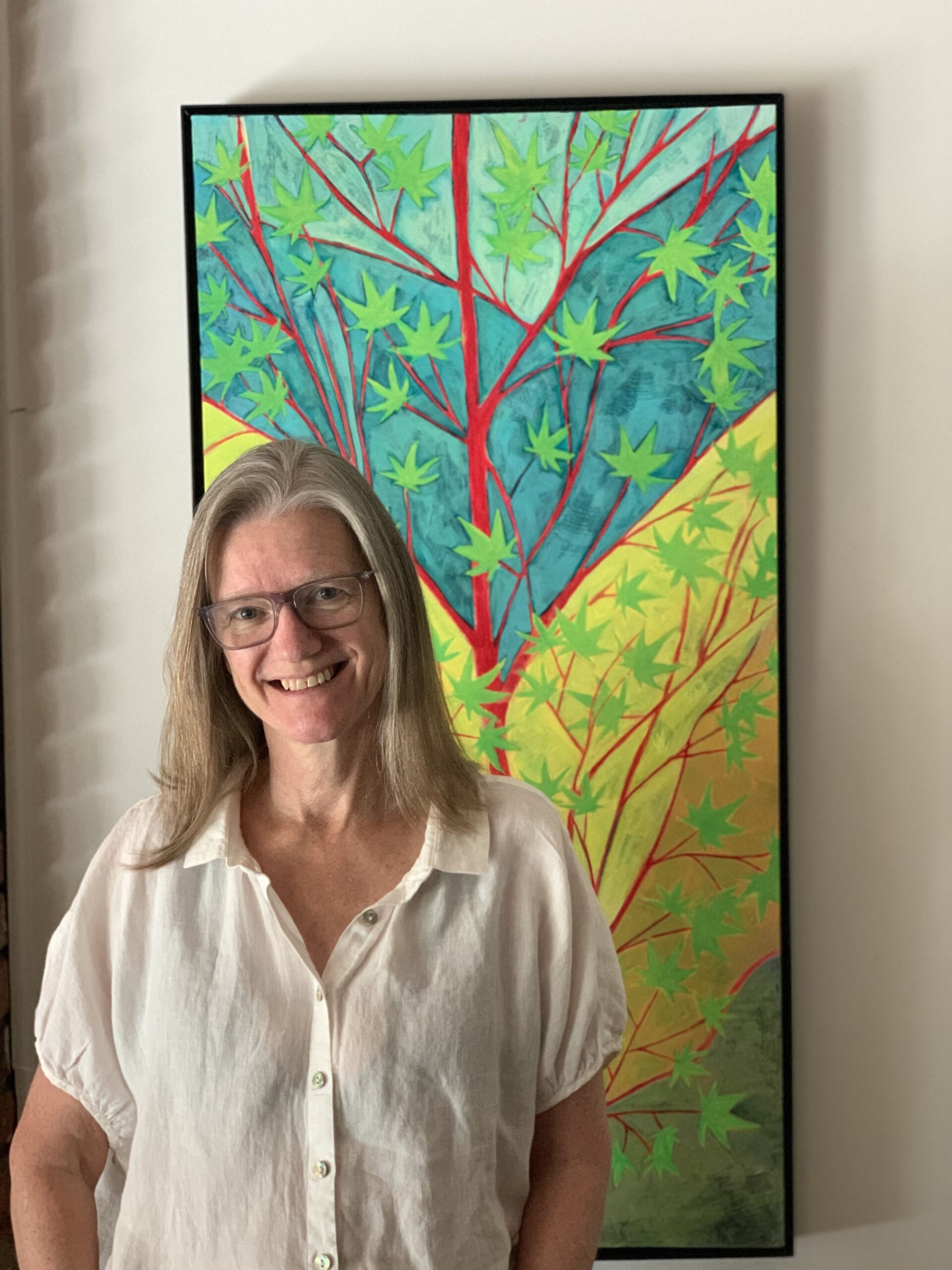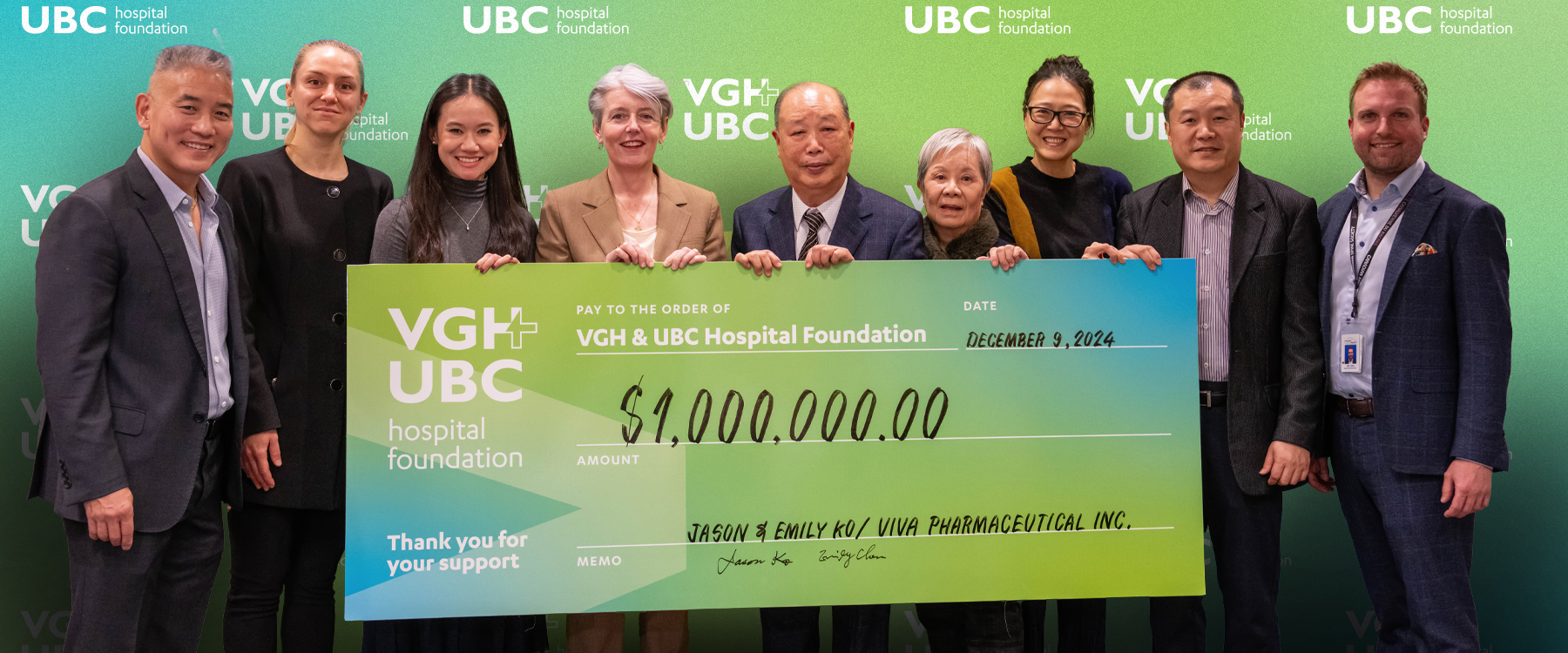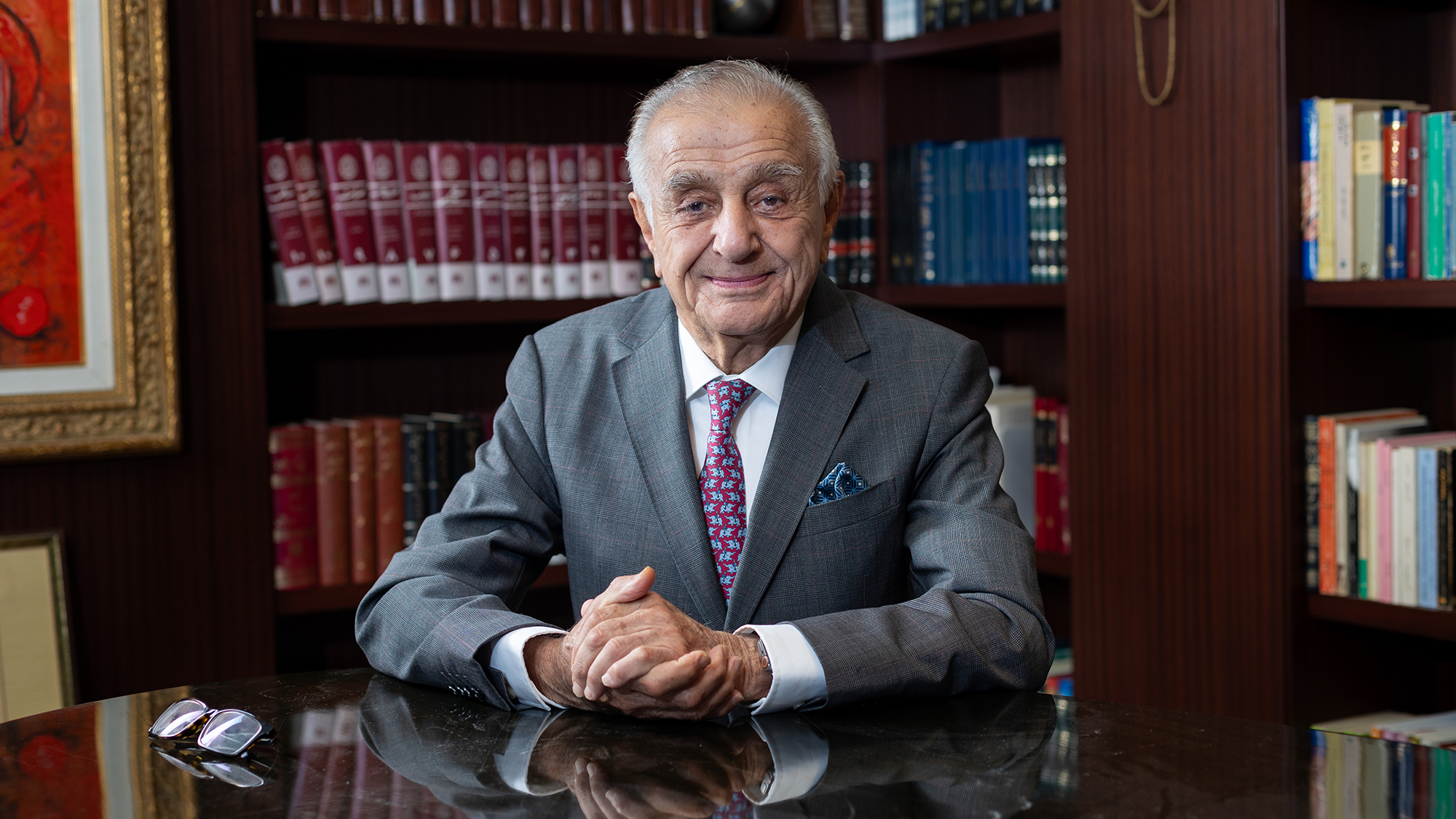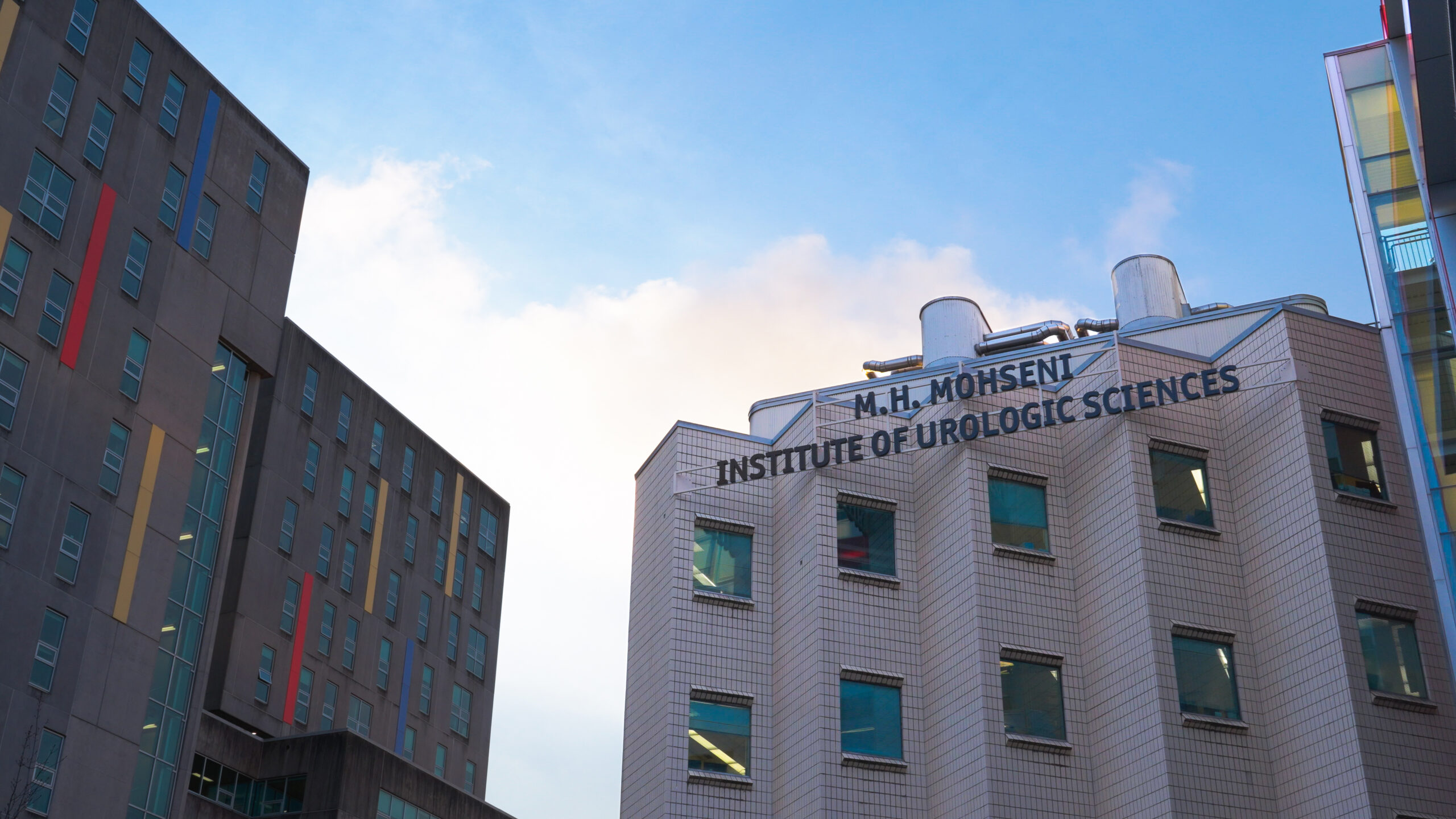Karen MacNeill has lived a full life – raising three sons, pursuing her love of teaching fine arts, and running a coffee shop for fifteen years. Today she and her husband own and operate a landscaping business, and she spends her spare time taking their dog, Rufus, on adventures, gardening and enjoying her long-time passion of painting. But in 2016, Karen’s life took an unexpected turn when she received a diagnosis that would challenge her in ways she had never imagined. After noticing some pain in her lower back, a medical checkup revealed a mass on her left kidney, and further tests confirmed she had a Chromophobe Renal Cell Carcinoma.
While this form of kidney cancer is very rare – only 3% of all kidney cancers – kidney cancer in and of itself is one of the ten most common urologic cancers – about 8,100 Canadians are diagnosed with this disease every year, and around 2,500 of those diagnosed are women. Today, early detection methods for this disease are not available, and symptoms do not usually appear until the tumor grows and spreads to other organs. Almost 72% of those diagnosed with kidney cancer are predicted to die within five years.
With such a rare diagnosis, there is very limited research on how to treat it, and often requires taking drugs meant for other cancers since no specific therapies for it exist. Because of the limited treatment options, Karen chose to have a radical nephrectomy, where doctors removed her whole left kidney, including the 15-centimeter tumor. Thankfully, the surgery was a success and she remained in remission for four years.
Unfortunately, in 2020, routine scans identified that the cancer had returned and metastasized to her liver. She was given an initial prognosis of 24 months. Thankfully, Karen’s oncologist, Dr. Lucia Nappi, senior research scientist at the Vancouver Prostate Centre, was not going to quit fighting for Karen.
After months of trying different therapies, and being weakened by adverse side effects, Karen and her family were losing hope. However Dr. Nappi was determined to find a treatment that would work. After extensive research, she identified an older drug that was rarely used any more, having been replaced by more advanced options. Although it was a last resort, it ended up being the miracle drug they needed. Karen’s health started to improve; however, she still had tumors growing that were causing her significant pain: “I was in so much pain that I needed fentanyl patches just to get through each day,” explains Karen.
With a high risk of the cancer spreading, surgeons were hesitant to remove the tumors, but Dr. Nappi continued to fight. Finally, Dr. Steven Chung agreed to perform a palliative surgery – removing the tumors pressing on the nerves that were causing Karen excruciating pain. Since it was difficult to identify which tumors were causing the pain, Dr. Chung removed the whole right lobe of Karen’s liver and removed a large tumor on the left side.
While the recovery from the liver surgery was long and painful, and she continues her cancer therapy today, Karen’s quality of life has significantly improved. Today, and with hope for the future, Karen is back to doing the things she loves – gardening, painting and taking her dog Rufus on adventures.
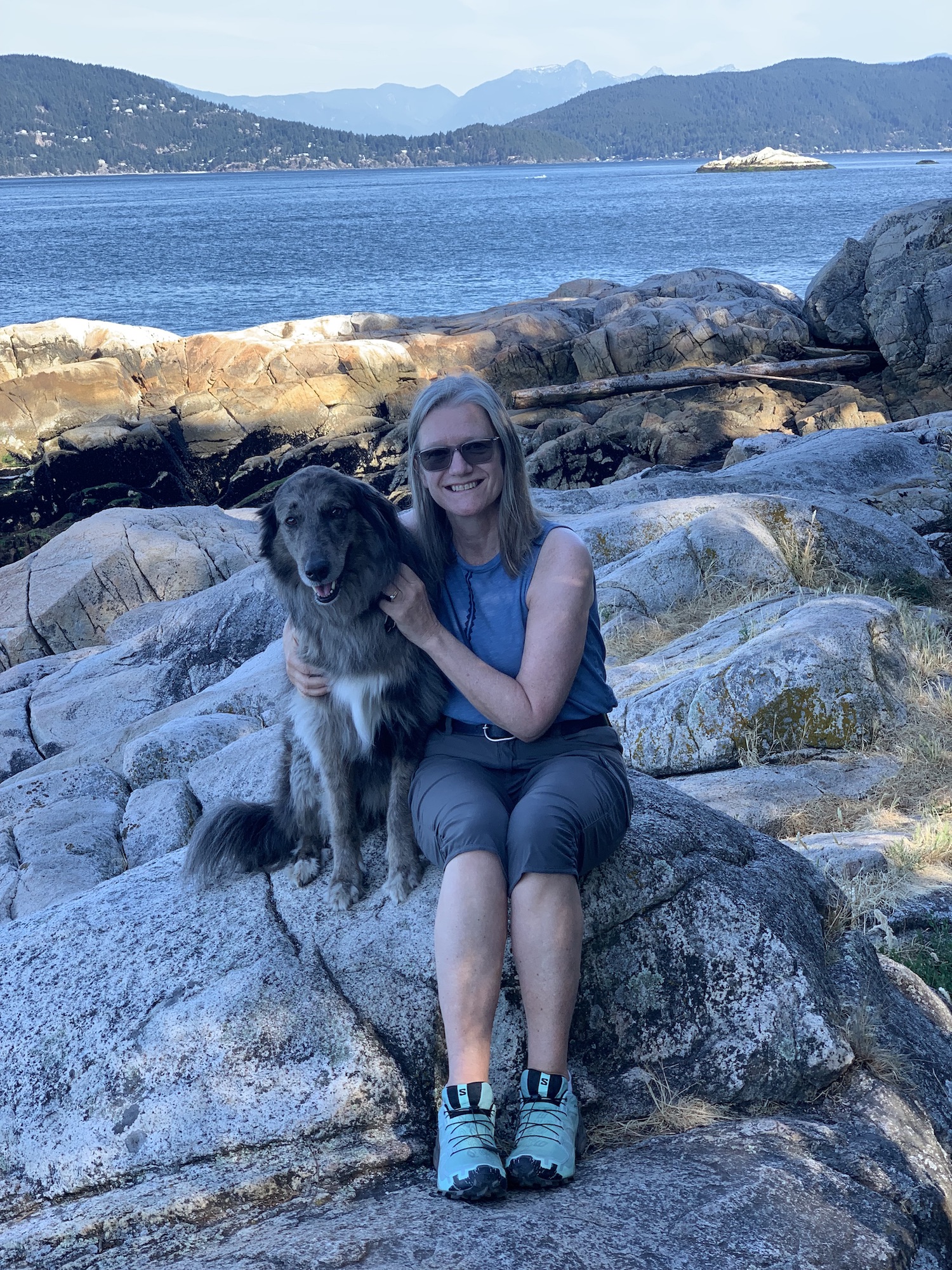
“I feel even better than when I was first diagnosed. The surgery gave me a second chance at life, and I am incredibly grateful for the care and dedication I received from Dr. Nappi,” says Karen.
While each patient story is unique, thousands of other British Columbians will be impacted by kidney and other urologic cancers. Through the generosity of donors, Dr. Nappi and her team can continue vital research into understanding cancers and identifying new targeted therapies for rare cancers like Karen’s. VGH & UBC Hospital Foundation is privileged to partner with donors to continue advancing urologic research and care by supporting exceptional physicians like Dr. Nappi through the Urologic Sciences Campaign.
Together, we build expertise to treat otherwise untreatable diseases and give hope for the future to countless British Columbians and their loved ones.
Share this:
